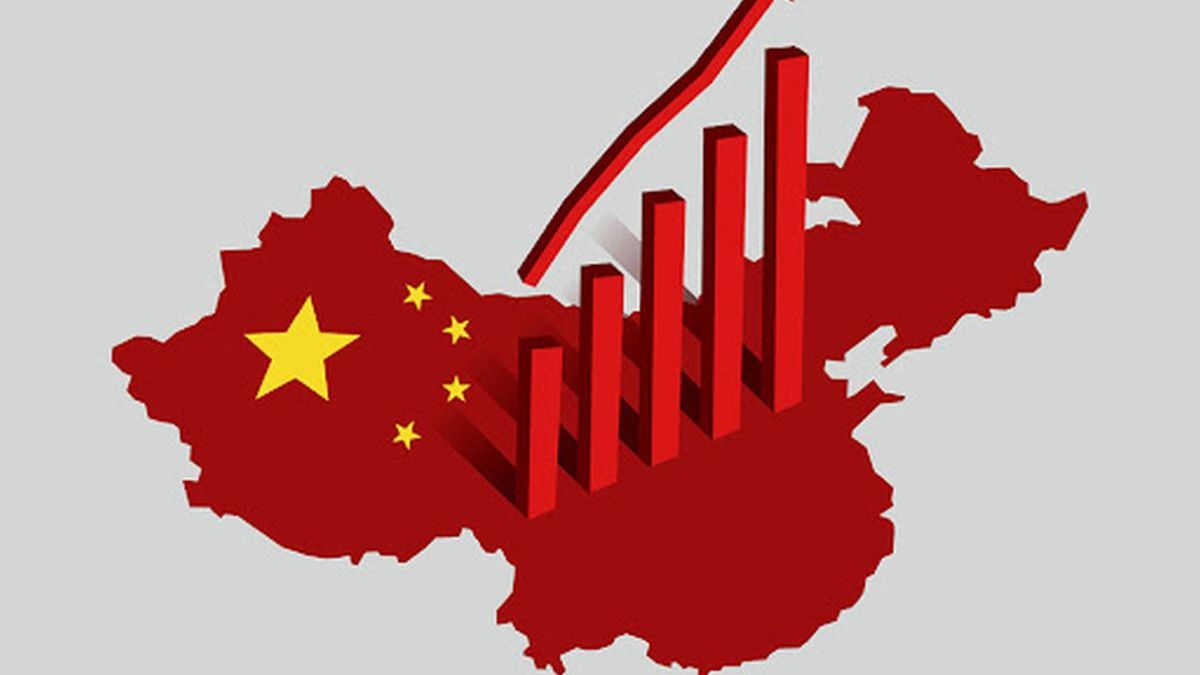In 2004, Premier Wen Jiabao announced to the National People’s Congress that China should accelerate its “global expansion” by increasing investments outside the continent. Twenty years after that report, Xi’s words on the occasion of the CIFTIS aim to review and synchronize economic calculation with geopolitical calculation.
The exhibition is one of the four largest national fairs and serves as a showcase for the goals of the latest Five-Year Plan (2021-2025) and the Made in China 2025 Plan proposed by Xi: accelerating the development of the service sector to achieve technological self-sufficiency and strengthening the dual-circulation economy.
From September 12 to 16, one of the most important events in the services industry worldwide took place in the city of Beijing, the China International Fair for Trade in Services (CIFTIS). Founded in 2012, the fair brought together the most important companies in the sector in nine thematic areas. On this occasion, the guest country was France. The exhibition is one of the four largest national fairs and serves as a showcase for the goals of the latest Five-Year Plan (2021-2025) and the Made in China 2025 Plan Xi proposed: accelerate the development of the service sector to achieve technological self-sufficiency and strengthen the dual circulation economy.
The content you want to access is exclusive for subscribers.
CIFTIS in numbers


The fair was held at the China National Convention Center and Shougang Park, covering a total area of 14,000 square meters. The site, a former dismantled steelworks park reminiscent of the Great Leap Forward and polluted Beijing, now stands in stark contrast to the latest in the digital and alternative energy industries. More than 420 companies met at the event, which combined in-person and online formats. Companies, international organizations, speakers and authorities from 85 countries participated, and more than 200 innovation results were published.
To understand the economic significance of these numbers, it is necessary to put them in relation to others. In 2022, China maintained the top spot in patent applications worldwide (World Intellectual Property Organization, 2022); in 2023, it ranked 12th in the innovation ranking prepared by this same organization (WIPO, 2023), and in 2023, the country achieved a share of almost 18% in the world economy (World Bank, 2024). The fair is, in part, a product of these economic achievements and, in addition, a means to attract investment, increase foreign trade and show the world China’s scientific and technological potential. A clear commitment to technological self-sufficiency and the growth of the internal market with global openness. This commitment has good reasons: according to the WTO, it is expected that by 2040, world trade in services will increase from the current 22% to more than 33% (WTO, 2023).
Highlights in services
Among the highlights of CIFTIS are the ecosystem of services that integrate artificial intelligence and communication systems; from semi-autonomous robots that allow remote surgery, to high-sized drones and the latest in satellite services. Electric mobility captured much of the attention, and hydrogen is emerging as a new source of energy. The Chinese automotive industry showed its full potential with a wide range of vehicles and brands. There were also new developments in video games, an industry in which China is increasingly gaining ground. Other highlights of the fair were the advances in artificial intelligence applied to industry and services, including education, with new teaching and learning assistants. Tourism also had its prominent place at the fair; the fair not only attracted hundreds of national and foreign visitors, in a Beijing that has consolidated its tourism performance in recent years, but it was also the place where new services for the industry were exhibited, with robotics standing out. The presence of the financial sector and, in particular, of Chinese state-owned banks was prominent, as was that of the country’s communications sector. Both are considered strategic state sectors.
During the business meetings, Chinese entrepreneurs showed their interest in investing in Argentina, and there was no shortage of questions about the country’s political and economic situation. Some businessmen expressed their optimism and their intention to expand their business network in the southern cone.
Xi’s words: the commitment to innovation and dual circulation economy
The motto of CIFTIS 2024 was “Global Services, Shared Prosperity.” A motto that sums up China’s strategy of insertion into global trade by providing high value-added services. In his congratulatory letter to the event, President Xi pointed out that China will promote and improve institutions and mechanisms for high-level opening. He also stressed that efforts will be made to make the norms and standards of the service sector compatible, directing these actions towards an orderly commercial opening (Ministry of Foreign Affairs of the PRC, 2024). In other words: a planned and coordinated opening by the state will be sought. What underlies this idea is the objective of improving exports of high-quality services while avoiding the country’s exposure to the ups and downs of the global economy. A more efficient opening, which can be driven to a greater extent by the domestic market. Looking a little further, it is about reducing China’s dependence on global supply chains and taking advantage of this decoupling to become a key supplier of high-tech services.
In 2004, Premier Wen Jiabao announced to the National People’s Congress that China should accelerate its “global expansion” by increasing investments outside the continent. Twenty years after that report, Xi’s words on the occasion of the CIFTIS aim to review and synchronize economic calculation with geopolitical calculation. Shougang Park, which seems to have surpassed the times of the Great Leap Forward, became for a few days a platform that recreates old and new illusions.
Researcher at the Center for Argentine Studies at UIBE, Beijing. UNLPam/UBA/CONICET
Source: Ambito
David William is a talented author who has made a name for himself in the world of writing. He is a professional author who writes on a wide range of topics, from general interest to opinion news. David is currently working as a writer at 24 hours worlds where he brings his unique perspective and in-depth research to his articles, making them both informative and engaging.




